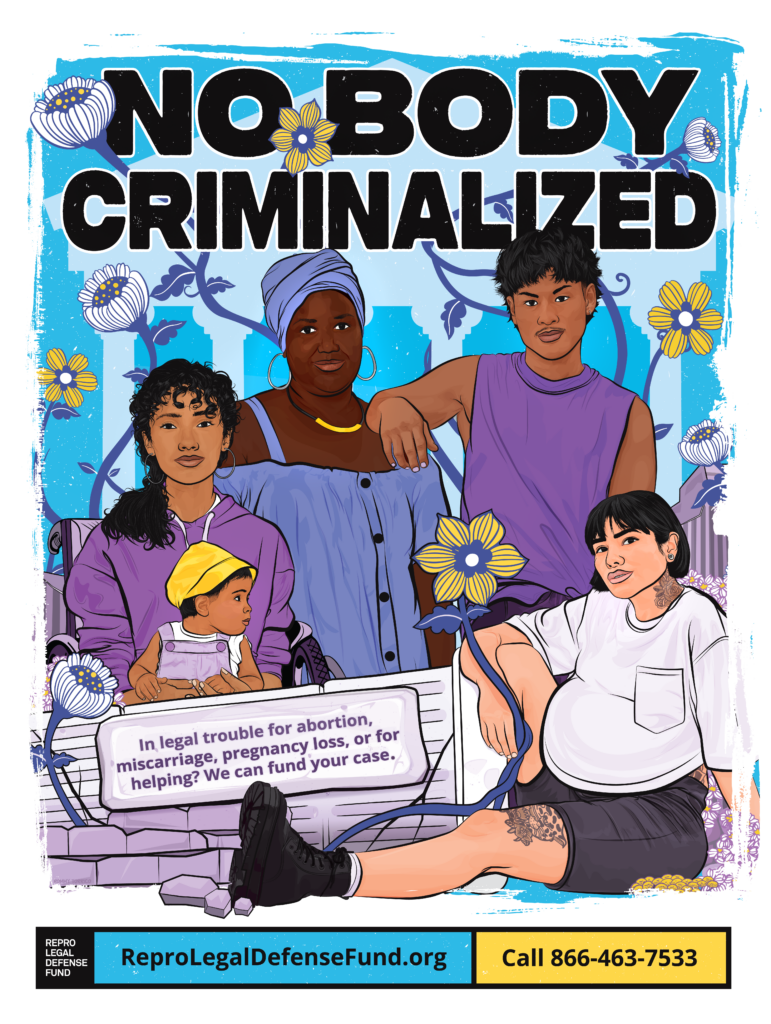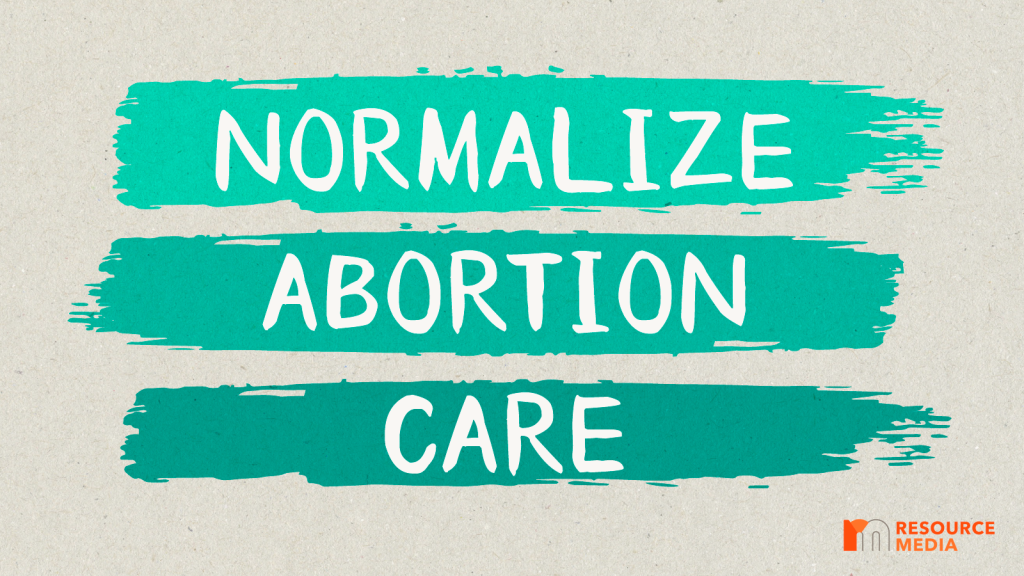Horrific consequences of abortion & pregnancy criminalization
By Marcela Gara and Rachele Hayward
In May 2023, Jaci Statton, a 25-year-old Oklahoman woman and mother of three children, confronted the heart-wrenching news that her pregnancy was non-viable. Despite seeking guidance from multiple hospitals and doctors, she faced the shocking reality that her situation was not deemed as a dire-enough emergency to justify medical care, even as Jaci grappled with both bleeding and a confirmed non-viable pregnancy. Rather than receiving standard abortion care, such as a D&C, the only guidance provided by doctors was for her to wait in the parking lot until she naturally expelled the pregnancy.
Jaci’s unimaginable story serves as a stark reminder of the challenges more and more Americans are encountering in the aftermath of the Dobbs ruling in June 2022, when the U.S. Supreme Court overruled the nearly 50-year-old precedent of Constitutional protection for abortion. As we look toward 2024, Resource Media’s staff reproductive justice strike force is urgently calling for continued resources, collaboration and strategic communications work, to ensure access to health care and human rights for everyone experiencing the full spectrum of pregnancy outcomes — including abortion, pregnancy complications, miscarriage and pregnancy loss.
New research shows that an increase in pregnancy criminalization has been taking place across the country, as people are being investigated, prosecuted and jailed for pregnancy loss using laws indirectly related or unrelated to pregnancy outcomes. 2023’s federal court injunctions and the upcoming Supreme Court review of the legality of Mifepristone, one of two commonly-used abortion pills, makes matters worse. Another alarming development is that pharmacies are sharing medical data, without warrants, and social media companies are sharing messages with police and prosecutors attacking people for pregnancy outcomes. Our horrific status quo leaves most of the public and many healthcare providers grappling with uncertainty, and lacking a clear understanding of how to navigate the complexities of abortion bans from state-to-state and procedure-to-procedure. As more stories like Jaci’s emerge, they illuminate the need to broaden our collective understanding of what we mean by abortion care and access.
Resource Media has found through our 2021-2023 reproductive justice work that mass media conversations around abortion are often fragmented, focused on legality, polarization and “two-sides” political battles, morality and personal choice. While new developments like state ballot initiatives are undeniably important, it’s equally crucial to view abortion care through a wider lens, destigmatizing pregnancy outcomes holistically and acknowledging the multifaceted nature of reproductive health.
We must acknowledge and educate ourselves about the “blurred lines” between pregnancy loss, unsafe pregnancies, and abortion — and know that access and care are convergent.
Often-overlooked is the profoundly harmful impact of criminalizing abortion care on millions of people experiencing all types of pregnancy loss, particularly people of color and Black women, which occurs every single day.
Resource Media’s recent digital marketing campaign for the Repro Legal Defense Fund confirmed the critical need for a transformation in the narrative surrounding abortion care, emphasizing that we are addressing fundamental, everyday healthcare. Approximately 26 percent of pregnancies end in miscarriage, about 1 in 4. What’s less known is the blurred line between abortion and miscarriage, with treatments often indistinguishable. The Repro Legal Defense Fund (RLDF) uniquely offers “people-centered defense” to vulnerable people facing legal trouble for pregnancy loss in criminal courts, immigration courts, and family courts across all 50 states. To gauge online users’ concerns about potential abortion care and pregnancy criminalization, and reach them with information about the RLDF, we compiled a robust list of Google key terms. Notably, alongside “abortion legal help,” the top-clicked terms were “prosecution for miscarriage” and “arrested for miscarriage.” This discovery heavily influenced our messaging, prompting a broader narrative around abortion – inclusive of abortion access and pregnancy loss as fundamental care.
Establishing a wide narrative of support for all pregnancy outcomes
Looking forward, Resource Media supports communications strategies rooted in a narrative of equitable abortion, accessible abortion care, and birth justice, meaning that everyone can access consistent and trustworthy support from all of their healthcare providers concerning their reproductive health. This means our institutions, from healers like midwives and doulas to mainstream hospitals, must extend compassionate care to individuals like Brittany Watts, a 33-year-old Black woman from Warren, Ohio, who endured a traumatic pregnancy loss at home—without subjecting her to criminalization for surviving a miscarriage.
Based on Resource Media’s experience, here is some guidance to create inclusive messages around abortion, care and access:
| Do this | Example message or approach | Avoid this |
|---|---|---|
| Promote bodily autonomy and normalize a range of pregnancy outcomes & experiences. Abortion is fundamental health care regardless of the situation. | “Abortion, miscarriage, and pregnancy loss are common parts of life.” “Any reason is a good reason to end a pregnancy. You do you. We understand.” “Managing abortions on one’s own is increasingly common. Our communities are rallying support to connect people with abortion pills, online or tele-health services, herbal healers, and other ways to self-manage abortion.” | Don’t use messages about personal choice – this opens up conversations to debate the circumstances. Don’t reinforce a false binary of ‘good abortions vs. bad abortions.’ |
| Include immigrants, people of color, and queer and trans people, and build trust & solidarity. | “Whether we’re cis or trans, queer or heterosexual, live in small towns or big cities, let’s do our part to help one another live safely and authentically.” | Don’t use messages that frame abortion care as a “women’s rights/health issue.” Abortion care and access affects more than cisgender women. No need to make that distinction. Use inclusive messages and images showing people of color and people of all backgrounds and immigration statuses. |
| Abortion care and access is an equity issue. | “For decades, access to abortion care has empowered individuals to plan for their economic, educational, and health futures. However, restricted access widens the divide among Americans – especially for BIPOC communities.” | Don’t overcomplicate, keep these messages straightforward. Abortion care has been a reliable part of the American healthcare system for nearly 50 years, enabling individuals to shape the impact of pregnancy outcomes on their lives. |
| Lean into positive values framing and an inspiring tone, instead of feeding fear and outrage. | “Everyone loves someone who’s had an abortion. Everyone knows someone who’s had an abortion.” “The same way we rally around our friends and family members if they get in trouble, there are millions of people in solidarity with others who have abortions, miscarriages and pregnancy losses. If you need support or want to help out a friend, we’ve got you.” | Don’t rely on messages that make people more afraid of criminalization, inadvertently reinforcing the disinformation such as “abortion is illegal,” and “you could go to jail.” Also avoid reinforcing silence and stigma by framing pregnancy loss and abortion as unfortunate, with phrases such as “no one should have to…” or “abortion should be rare.” |
| Embrace “outside the box” communications tactics. | Try tactics that Resource Media has used successfully with our clients, such as paid Google search ads, Reddit forums, working with visual artists, and influencer videos on Tiktok! | Don’t preach to the choir of audiences who support abortion as a political issue, alone. |
| Use multilingual & multicultural approaches. | Work with communities of color to transcreate and tailor messaging, advertising creative and copy. | Don’t create materials in English only. |
| Center voices of lived experience. | Identify, develop and amplify abortion storytellers and spokespeople who have been pregnant, had abortions, and have given birth. Be explicit and use principles of informed and ongoing consent when people are telling personal stories. | Don’t fall into responding to political rhetoric from those who don’t have lived experiences, and the minority scientific opinion they hire. |
| Advance geographic equity. | Use geo-targeting in advertising tactics to reach communities in places where pregnancy has been severely criminalized | Don’t dismiss areas such as the U.S. South and Midwest as “abortion deserts” or “ban states” with a snarky tone. |
What else can we do?
As we move into 2024, Resource Media commits to opposing the tide of unjust pregnancy criminalization and continue our communications work in support of reproductive justice. In 2024, we need to go even harder with our organizing, strategic communications efforts, and cultural work, influencing the debate raging in American courts, legislatures, and healthcare providers, in favor of full-spectrum pregnancy and abortion care.
We also need to support the brilliant, dedicated individuals and organizations that are actively advancing access to reproductive care on various fronts. From a local to national level, we must amplify credible and accessible messengers such as Resource Media’s past pro-bono equity impact and professional partners and clients. Opportunities to take action include:
- Donating to and volunteering for grassroots abortion funds and practical support networks like the Richmond Reproductive Freedom Project in Virginia and Palmetto State Abortion Fund in South Carolina; to find a local group to support, visit noisefornow.org/map;
- Donating to and volunteering for independent clinics like the Women’s Health Center of Maryland on the border of West Virginia and CHOICES Center for Reproductive Health in Carbondale, Illinois;
- Spreading the word about abortion care and reproductive justice for everyone – use the RLDF social media toolkit for inspiration;
- Sharing credible information to fight fear and abortion stigma, from legal advocacy organizations like the Center for Reproductive Rights and If/When/How: Lawyering for Reproductive Justice;
- Buying abortion-positive concert tickets, limited edition records, merch, visual art and other goodies from musicians, artists, creators and culture workers with Noise For Now.
Finally, please share this blog post and other resources and messages supporting people and communities who will continue to experience pregnancy loss and abortions, with your networks! You have the power to shift narratives — we encourage you to post about what access to abortion and pregnancy care means to you, on an array of platforms like locally-based Reddit threads, YouTube, WhatsApp chat groups, and other digital gathering places — as well as with your doctors, nurses and other healthcare providers.
Together, we can ensure that no one is made to feel alone or like a criminal when navigating heartfelt decisions about birth, life, and their bodies. We must transform our reproductive life events into meaningful, and even joyful, acts of autonomy, care, and solidarity.


